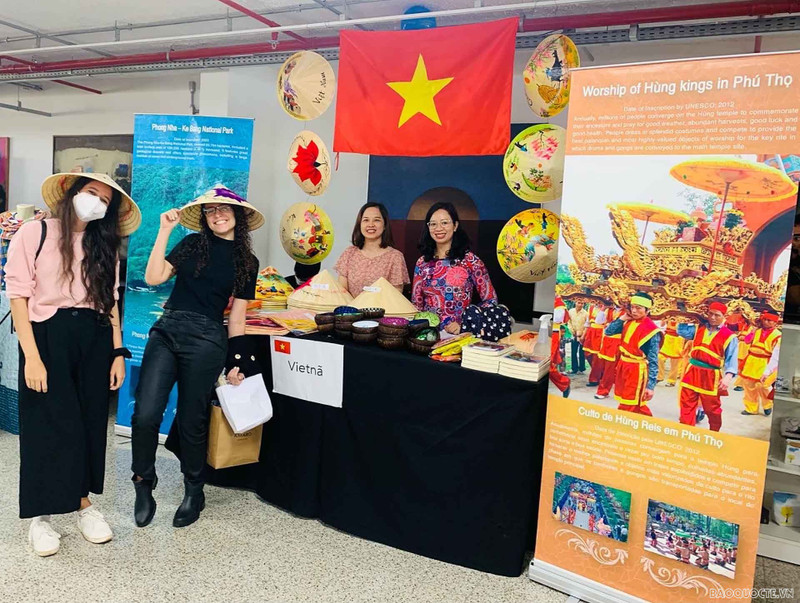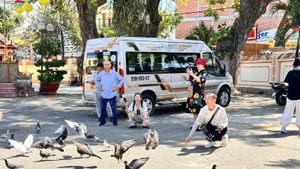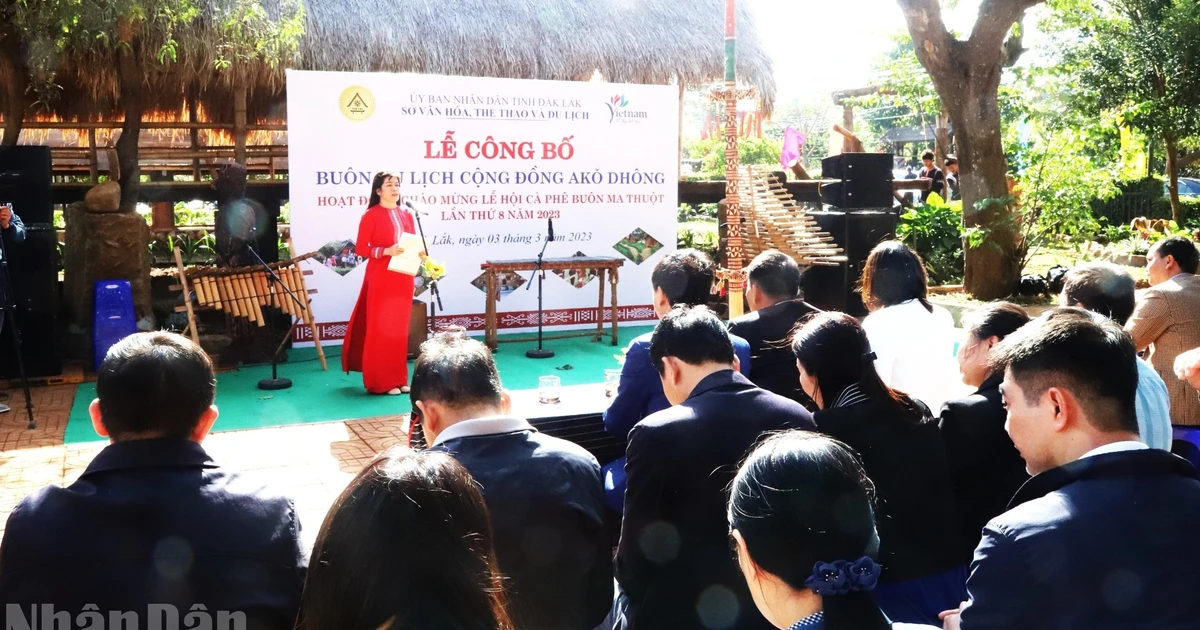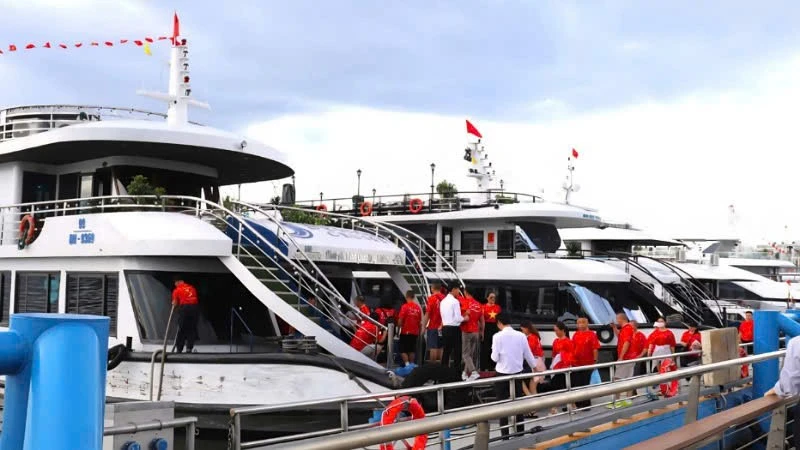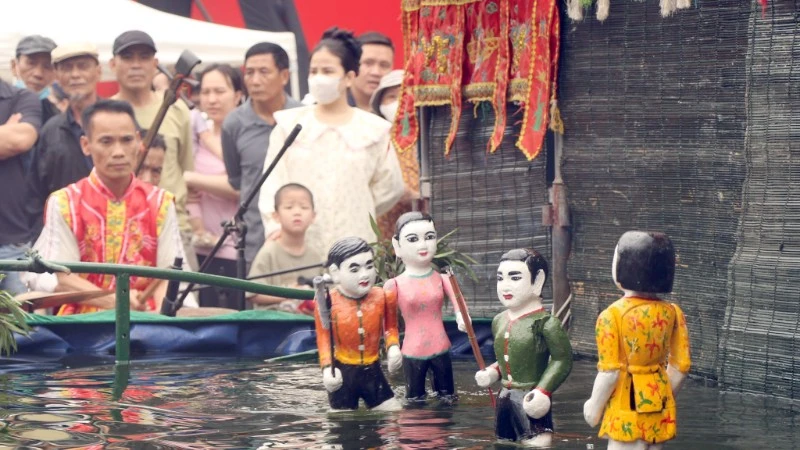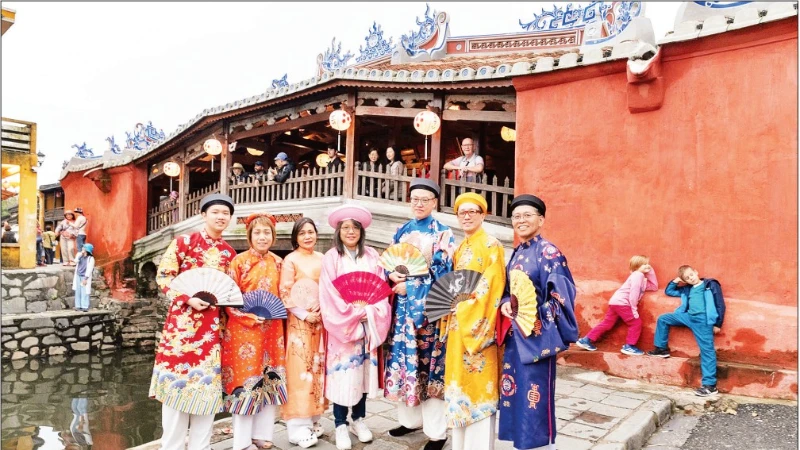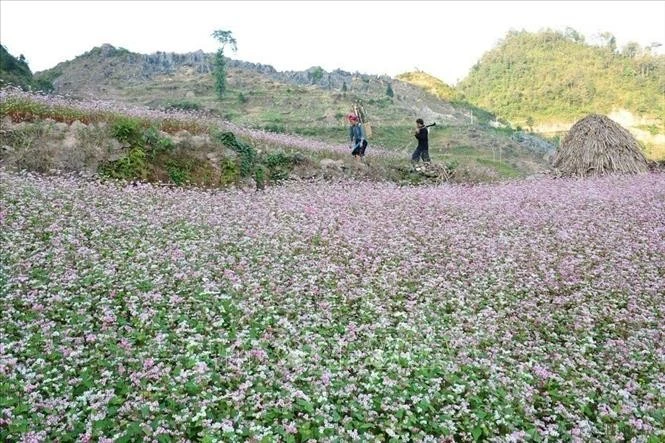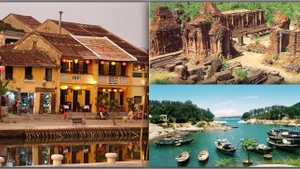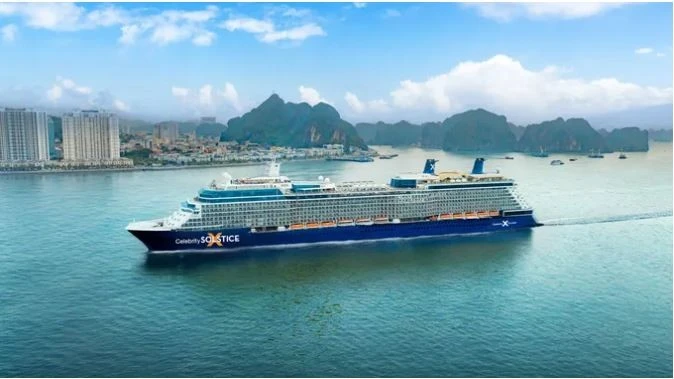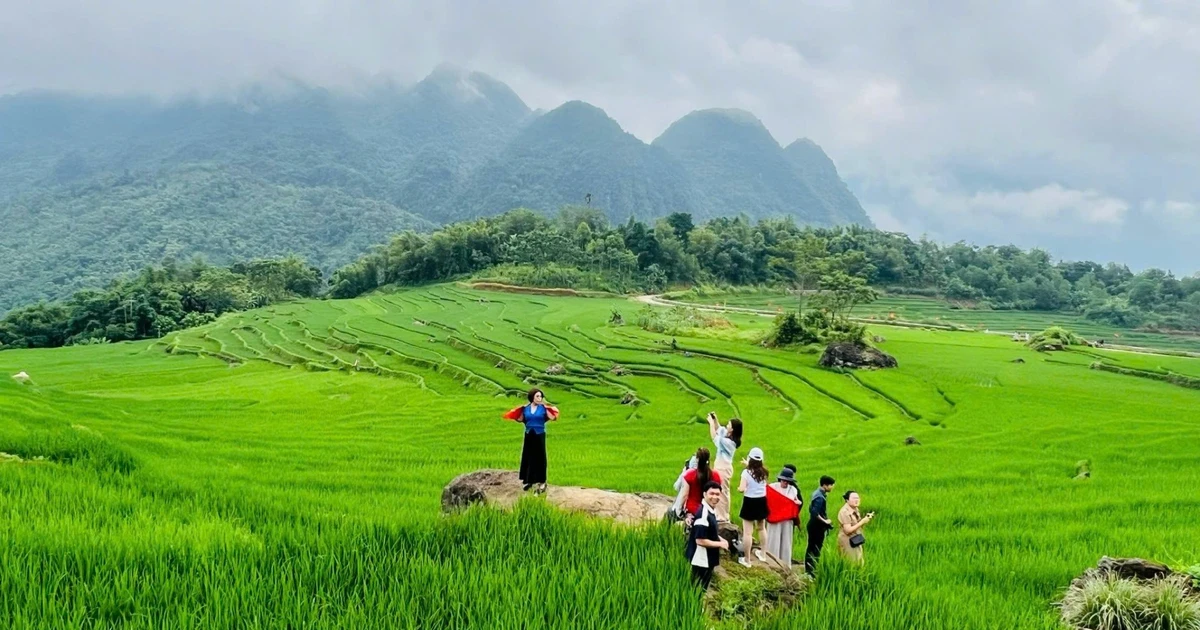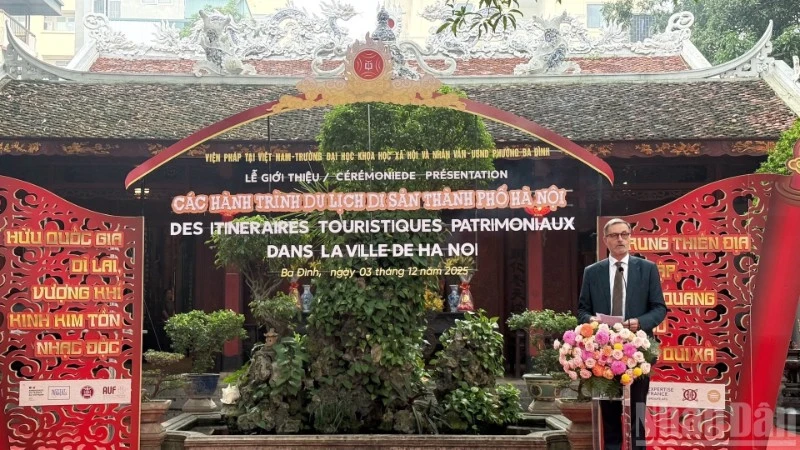Phong made the statement at a recent conference held in Hanoi by the Vietnam National Tourism Administration (VNAT) under the Ministry of Culture, Sports and Tourism to discuss tourism promotion in 2024 with a focus on developing the country’s hospitality sector in a comprehensive, rapid, and sustainable manner.
According to a report from the Vietnam National Tourism Administration, Vietnam welcomed 12.6 million foreign visitors in 2023, far exceeding its target of 8 million. The number of domestic tourists was estimated at 108.2 million arrivals, an increase of 6% compared to the plan.
The total revenue from tourism last year reached 678.3 trillion VND, 4.35% higher than expected.
Most recently, in the first quarter of 2024, the number of international visitors to Vietnam counted more than 4.6 million, up 72% year on year and up 3.2% over the same period in 2019 before the COVID-19 outbreak had occurred.
These encouraging results signal the recovery of the tourism industry, creating a basis for hoping that Vietnam will achieve the goal of welcoming 18 million foreigners by the end of this year.
Speaking at the conference, Deputy Minister of Culture, Sports and Tourism, expressed Ho An Phong expressed his belief that based on the figures of 2023 and the first quarter of 2024, Vietnam can completely achieve the plan.
However, he noted that in the context that the world is witnessing many unpredictable developments in economic decline and climate change, which pose both advantages and challenges on the tourism industry.
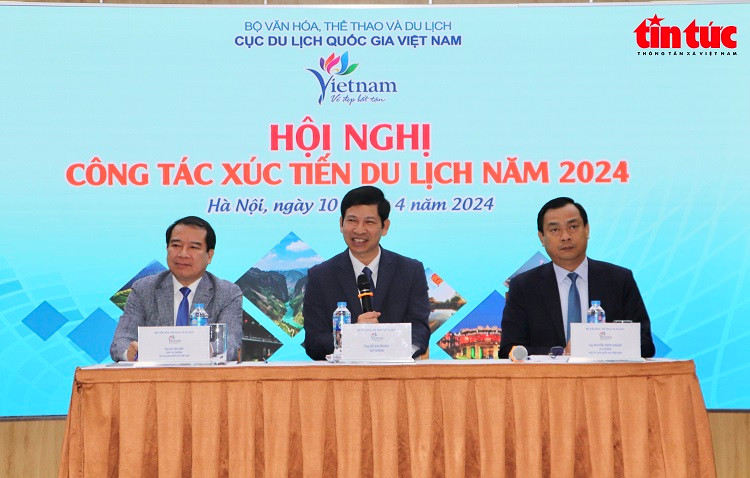 |
| Deputy Minister of Culture, Sports and Tourism Ho An Phong (C) speaking at the press conference (Photo: VNA) |
During their discussions at the conference, delegates pointed out that Vietnamese tourism still has many limitations that need to be addressed.
Regarding management in tourist destinations, there are still shortcomings in food safety and environmental sanitation which need to be improved. A few owners of tourist products and services practice dual-pricing and tourist traps that visitors should be aware of, which has negatively affected the image of Vietnamese tourism.
Regarding product quality, localities and businesses have not yet developed distinctive tourist products that distinguish Vietnam tourism from that of other countries. In addition, there is a lack of professionally international-level events that take place periodically and regularly to leave convincing impressions on visitors.
Additionally, the tourism pricing is not stable, especially during the peak season. As a result, many businesses become passive in building and providing product packages to customers.
In particular, the connectivity and coordination between ministries, sectors and localities is not strong enough in terms of tourism management and promotion.
In his speech at the conference, Ha Van Sieu, Deputy General Director of Vietnam National Tourism Administration, stressed that tourism promotion is an important solution to realise the goals of the tourism industry in 2024, which aim to create breakthroughs, change thinking, and promote connectivity.
The tourism sector needs to take a new approach in its tourism marketing campaigns so as to bring efficiency gains.
Deputy General Director of Vietnam National Tourism Administration Ha Van Sieu
He said that the tourism sector needs to take a new approach in its tourism marketing campaigns so as to bring efficiency gains.
At the same time, authorities and businesses need to devise a long-term vision to position and promote the national tourism brand towards facilitating rapid, comprehensive, and sustainable development, he suggested.
He revealed that tourism promotion work in 2024 will focus on advertising sea tourism, cultural heritage tourism, and ecotourism, and those serving high-quality markets such as golf tourism, adventure tourism, and cruise tourism.
While analysing the marketing strategy for the tourism industry, Ho An Phong, Deputy Minister of Culture, Sports and Tourism, said that the nature of tourism marketing and promotion is the connection between mobilising available resources of state agencies and businesses.
Phong stressed that popularisation activities should target highlight events, national events, and international events in several crucial markets such as the US, the UAE, and India.
He urged the Vietnam National Tourism Administration to bolster cooperation with competent parties in launching its tourism campaigns and penning measures to handle challenges posed by geopolitical conflicts, economic recession, and high airfares.
He emphasised the importance of timely forecast and response while boosting digital tourism promotion, carrying out key campaigns, and diversifying the market approach.
Localities need to coordinate smoothly with businesses to create innovative products for each region and area in the country. Only once each province and city can affirm its own local tourism brand can Vietnam truly position its national tourism brand in the world tourist map.
